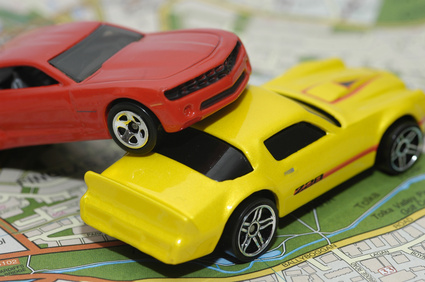
Anti-lock breaking systems are a safety standard in modern automobiles. The system automatically adjusts brake pressure in the event of an emergency stop, which prevents the wheels from locking up. This adjustment allows the driver to maintain control of the vehicle, when, without the system in place, they may not have been able to. Though ABS systems are credited with saving lives, their disadvantages have also been the subject of significant debate since their inception.
Anti-lock brakes were first developed in the late 1920s, and have been a standard feature on automobiles since the 1970s. It is a common belief that ABS systems significantly reduce the stop time of a vehicle, an especially useful trait in the event of an emergency. In most situations, however, this belief is not as accurate as once thought. In reality, some studies show that the change in stopping distance is negligible, and may even increase the distance needed to bring a vehicle to a complete stop. According to a study done by Monash University, ABS may actually increase this distance in certain situations; predominately on soft surfaces and in unpacked snow. It is important for drivers to remember that the primary function of an anti-lock brake system is to avoid skidding and assist the driver in maintaining control; it is still necessary to maintain a safe distance no matter what the road condition.
Cost is a prime disadvantage of an anti-lock braking system. ABS systems require significantly more parts than a traditional braking system, meaning there are more opportunities for damage to occur. With regular maintenance and care, repair costs may be kept to a minimum, but if left alone for a significant amount of time, small problems can become larger and more expensive to fix. It is especially important to regularly check brake fluid and pads to reduce potential problems. Automobile owners should be cautious and keep an ear out for strange sounds, a change in the feel of braking or other signs that may come up. Preventative maintenance is key to avoiding expensive repairs.
Another potential problem with adding mechanics is the increased possibility of system damage. A variety of factors can cause the system to be less effective, and can present with everything from shuddering of the vehicle to loud noises while trying to stop. Diagnosing potential problems are also more difficult, a factor which can cause larger repair bills. Additionally, some electronics or other pieces may require the assistance of a specialist; making do-it-yourself repairs less likely. If one or more pieces fail, it may require a complete overhaul, which can quickly become a pricey prospect. If at all possible, replace pieces as necessary to avoid significant and expensive repairs.